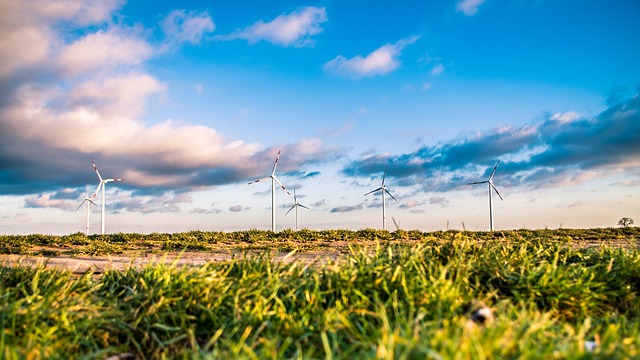By Anindya Upadhyay, Bloomberg
Global wind turbine makers are expanding manufacturing capacity in India to boost exports from the South Asian nation even as the country’s domestic industry faces headwinds.
India is well placed to be a manufacturing center for the wind industry and is emerging as an important part of the global supply chain, according to Ben Backwell, the chief executive of industry body Global Wind Energy Council. “Production cost in India is very competitive and engineering is very strong,” he said by phone. “They can beat anybody.”
Danish wind turbine maker Vestas Wind Systems A/S announced earlier this month that it will set up a new nacelle and hub assembly factory in India that will be operational by next year. The company hopes to increase “export capabilities from India with the aim of making it a global renewable energy manufacturing hub.”
The announcements come as the South Asian nation’s wind turbine industry is struggling for orders after Prime Minister Narendra Modi’s government shifted to auctions in 2017 as the preferred method to install wind projects. That’s limited orders for domestic manufacturers such as Suzlon Energy Ltd. and Inox Wind Ltd. even as the nation aims to reach 175 gigawatts of installed renewable energy capacity by 2022.
While the transition to auctions has resulted in lower tariffs, building that new capacity has faced hurdles with land acquisition and grid access. India has been installing less than 2 gigawatts of wind projects annually for the last two years rendering most of its 13.5 gigawatts of manufacturing capacity in factories unused.
Supply Chain
If the current domestic installation rate continues beyond 2021, the Indian industry would be in deep trouble, according to D.V. Giri, secretary general at industry body Indian Wind Turbine Manufacturers Association.
But the country’s robust supply network may be helping lure foreign firms who are seeking to ship wind power equipment to overseas markets.
“India has become very competitive from an export perspective,” said Amit Kansal, the managing director of the India unit of Germany’s Senvion SA, which plans to expand existing facilities in the western state of Maharashtra and has obtained an export license for blades. “Almost 90% of the supply chain is available in India, ranging from gear boxes to generators, blades, towers etc.”
Competition from international turbine manufacturers will progressively gnaw into the market share of domestic manufacturers and they will have to adapt, according to Anish De, national head for energy and natural resources India at consulting firm KPMG.
Suzlon Energy missed repayment of an outstanding $172 million principal on notes due in July on low orders have dried up its cash flow. Rival Inox Wind Ltd. has posted losses the last two financial years.
“The disruption after 20 years of the old model has changed the rules of the game” and local manufacturers have lost the advantage, De said.





